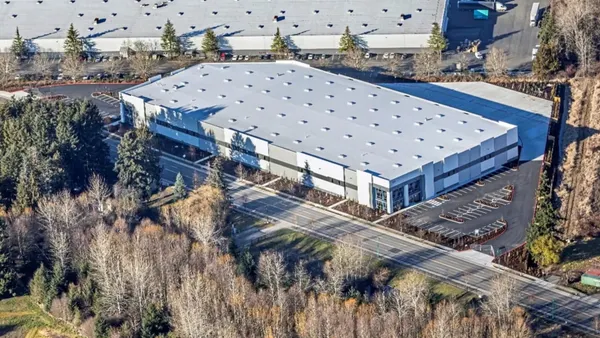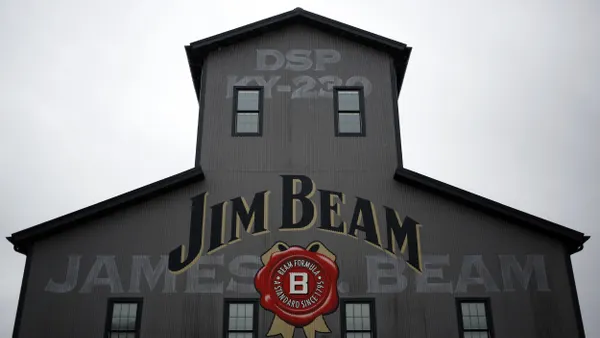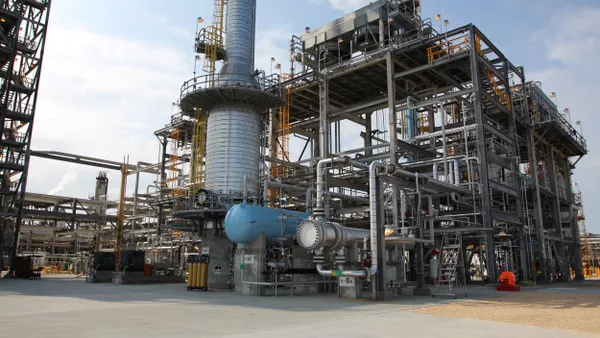Dive Brief:
- Nestlé plans to invest $3.6 billion over the next five years as part of its long-term goal to cut in half its emissions by 2030 and reach net-zero emissions by 2050, the company said in a statement.
- As part of its efforts, Nestlé expects to use 100% renewable electricity at its 800 global sites by 2025 and plans to work with its farmers and suppliers on regenerative agriculture practices. It also is increasing the number of "carbon neutral" brands it offers as consumers increasingly value this attribute when they purchase a product.
- Nestlé, the world's largest food company, is the latest multinational player to commit to spending billions of dollars to reduce its environmental footprint and respond to growing interest among shoppers in sustainability efforts. In February, dairy giant Danone said it planned to invest $2.18 billion to reduce its climate impact while Diageo committed to reach net-zero carbon emissions in its owned operations and reduce emissions from its supply chain by 50% by 2030.
Dive Insight:
Nestlé, which estimated it emitted 101 million tons of greenhouse gas emissions in 2018, plans to reach net-zero emissions in 30 years by making improvements throughout its entire supply chain, including the farmers that grow the crops, where the food is made, the type of ingredients, how it's packaged and eventually how it is shipped to grocery stores around the world.
In the U.S., for example, its plant-based line Sweet Earth committed to carbon neutrality by 2025 while Coffee Mate will convert its entire portfolio to 100% recyclable bottles by 2022. Earlier this year, Nestlé announced it was planning to spend as much as $2.1 billion to make its packaging more sustainable.
After the initial $3.6 billion investment through 2025, Schneider said as Nestlé scales up its initiatives, more money will be needed, though it's too early to quantify the number. Nestlé said these investments will be financed primarily through operational and structural efficiencies to keep this initiative earnings neutral.
Ryan Whittaker, a consumer analyst at GlobalData, called Nestlé's plan "ambitious" and an indication of how pervasive environmental issues have become in the corporate and consumer world. It's also likely to resonate well with global shoppers, especially as the coronavirus has increased the priority of sustainability and ethics.
"Nestlé is really showing us a glimpse of how future business is going to be approached — companies are going to have to become greener, more transparent and ultimately more sustainable," Whittaker said in an email to Food Dive. "Other companies should take note."
Popular international brands sold in the U.S. have recently announced similar carbon neutrality commitments, including S.Pellegrino and Nespresso. Globally, the Swiss company also said it expects to source more than 14 million tons of its ingredients through regenerative agriculture by 2030 and increase its reforestation program by planting 20 million trees every year for the next decade in the areas where it sources ingredients.
Nestlé said its roadmap breaks the company's efforts down into concrete steps that allow for full transparency going forward on whether the food giant is meeting them. "On a long-term commitment that runs for 30 years, you can imagine if you don't have full transparency, if you don't break it down into milestones and if you don't report regularly against them, a commitment like this would have little credibility," Schneider acknowledged.
But even as CPG giants make these pledges, there has been criticisms levied against them by environmental groups who say they are not following through. In some cases, companies have admitted their initial targets may have been too optimistic.
Last year, Nestlé and Procter & Gamble confessed they would not meet 10-year-old goals to rid their supply chains of deforestation by 2020. And a 2019 Greenpeace report claimed that "not a single company was able to demonstrate meaningful effort to eradicate deforestation from its supply chain." It said Danone, General Mills, Hershey, Kellogg, Kraft Heinz, Nestlé, PepsiCo and J.M. Smucker were among the companies that haven't released their progress on these pledges.
The Nestlé announcement also came just two days after the U.S. Supreme Court heard oral arguments on whether Nestlé USA and Cargill should be held accountable for child slavery on farms in Africa where they source cocoa.













